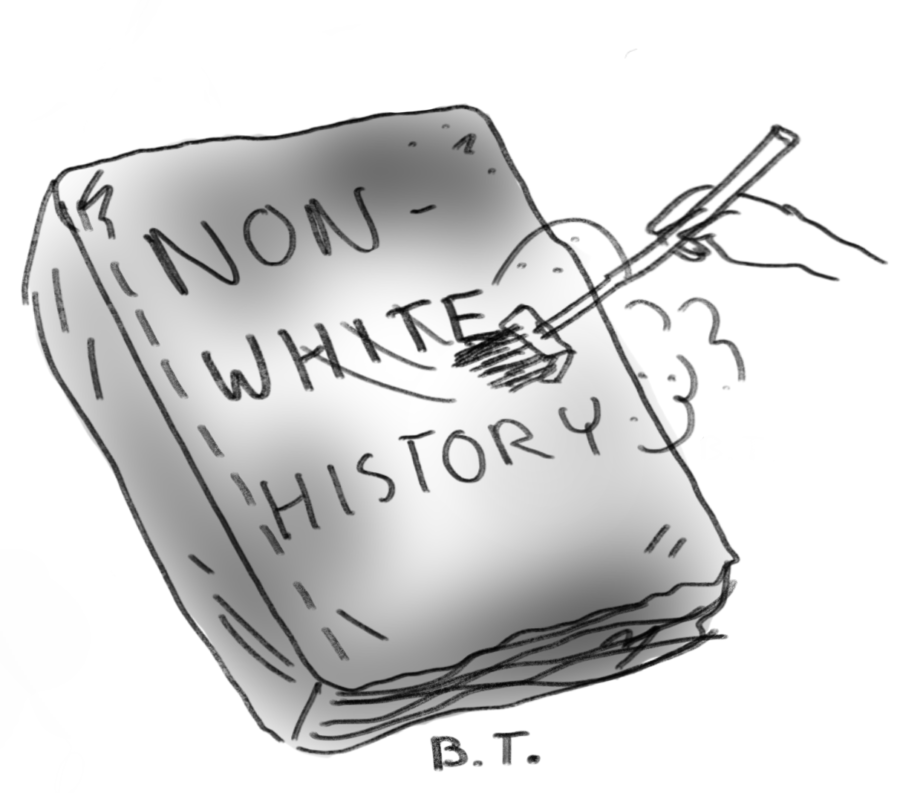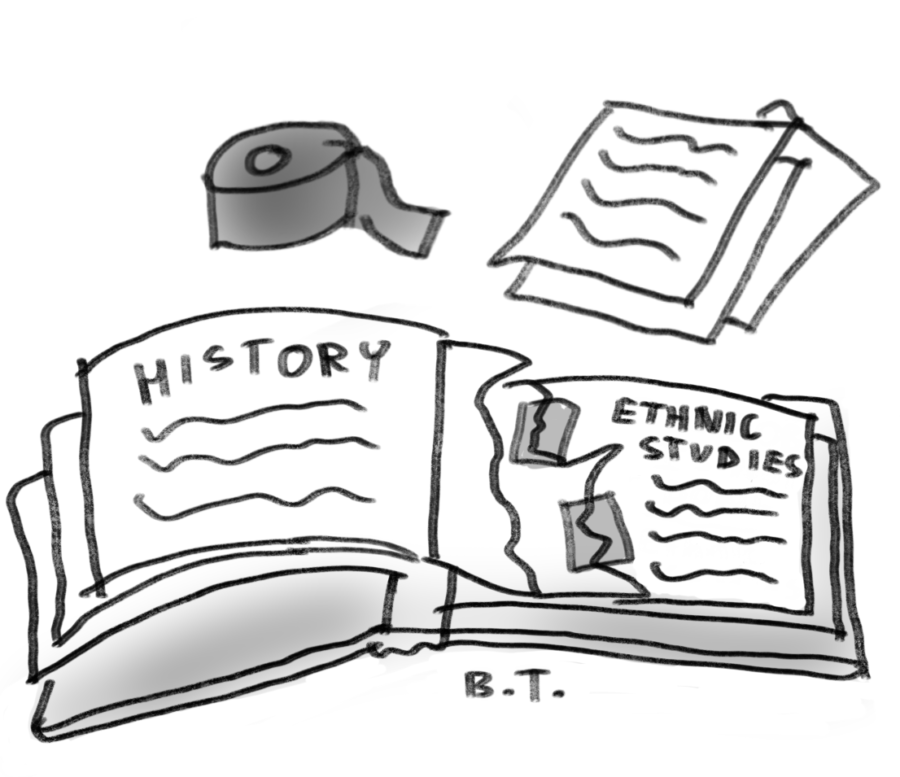Should Ethnic Studies be a graduation requirement?
California passed a bill adding Ethnic Studies as a high school requirement, starting with the graduating class of ’29-’30.
October 29, 2021
Yes
No
Jayden Xia
YJ Si
As the saying goes, “History is always written by the winners,” and in America, white men have been the winners for a long, long time. Consequently, much of the history that is taught in schools is through the eyes of white men.
Ethnic groups like African and Asian-Americans are often presented as side characters in the historical narrative, existing in footnotes or two sentence paragraphs. Thus, non-white ethnic groups’ struggles and successes are often invalidated, leading to students’ categorization of that group to be “others.”
Ethnic Studies is needed to be able to directly combat this problem, which is why I’m in full support of the course becoming a graduation requirement.
I’d like to begin by clarifying that my stance is not against the existence of an Ethnic Studies class. I believe that such a course can allow us to better understand one another’s identities and cultures, and create progress in our battle against systemic racism. As such, I support its presence in our schools.
That said, I have doubts about California’s new policy that requires an Ethnic Studies course to be taken by graduation starting for the graduating class of ’29-’30. More specifically, I wonder if the content of Ethnic Studies should be a separate course in the first place, rather than an addition to the curriculum already taught in existing history classes.
In PUSD, the current Ethnic Studies course includes four categories that explore identity, immigration, oppression, and social
Ethnic Studies curriculum consciously seeks out perspectives of underrepresented minority groups to

movements. Each category is taught through the lens of its role in American life—both in the past and the present. The class is still fresh, and in our district, is relatively unstructured, allowing extra time for class discussions and exploration of each topic.
create a holistic representation of history. Events and experiences that were previously left out can be addressed and students are able to analyze why they’re important.
After all, in order to begin the process of resolving deep rooted issues in our society, like implicit bias and systemic racism, we must acknowledge the issue. Learning about the origin of modern societal struggles helps to solidify them as fact. Students will learn to identify patterns of discrimination through the study of oppressed peoples in America’s past, allowing them to address them in the present.
Ethnic Studies material can only be fully covered if it’s allotted a full course; trying to combine it with existing classes cuts into its breadth and depth. This course isn’t one where material can be cut or skipped: all of its perspectives are necessary to fulfill the purpose of the course.
In addition, Ethnic Studies’ curriculum is purposefully left unstructured to allow for
But what doesn’t make sense to me about making Ethnic studies a graduation credit separate from history is that the two subjects are fundamentally intertwined.
The Ethnic Studies course in the Poway Unified School District (PUSD) serves to explore “how values and perceptions placed on race, ethnicity, nationality, and culture have shaped and continue to influence individuals and society in the United States.”A U.S. History course can’t paint the full picture if the Ethnic Studies portion is left out, and an Ethnic Studies course is better equipped if taught within its historical context rather than apart from it.
As is, the course is obviously new and still has plenty of room to change. But by separating the U.S. History course from the Ethnic Studies course, there’s an implication that somehow Ethnic Studies itself is separate from history, when that’s far from the case, and, frankly, is a harmful narrative to push.
teachers and students to shape the course to their needs. State guidelines for Ethnic Studies courses consist of loose thematic outlines but don’t specify the way teachers need to execute it. Both students and teachers are given the freedom to bring up topics that are important

Instead, I think it would be more effective for students’ learning to require that the historical portion of the Ethnic
to them, allowing for a more nuanced and impactful learning experience.
A community wrought with discrimination against African-Americans, for example, may prompt a teacher to focus more on the history of Black struggles, better educating their students on the pains of prejudice and enabling them to empathize with their peers.
And while it’s great that some teachers make a conscious effort to include a variety of historical perspectives and address modern issues, setting Ethnic Studies as a strict requirement sends the message that students learning about racism isn’t something that hinges off the goodwill of a teacher: it’s a necessity. Ethnic studies should be a graduation requirement for the same reasons there are requirements in subjects like English and History: we deem them as necessary.
Educators believe that these subjects must be included to ensure that students have a sufficient education. If the point of mandatory subjects is to ensure the growth of well-rounded students, shouldn’t we then even further encourage classes that ensure the growth of well-rounded humans?
To maximize the profound impact Ethnic Studies has to create genuine change in society, it should be a separate graduation requirement in school.
Studies class be integrated into U.S. History.
By teaching the facts alongside a lens of the role racism played, that creates a clearer image of exactly how much racism of the past still affects society today.
Another thing to consider is that there are not yet any specifications as to what grade these courses would be required to be taken in. Is it like a fine art or a science, where it doesn’t matter when you take it as long as you take it at some point? Or is it required in a specific grade level, where the added class can clash with the rest of the required schedule? If it can be taken any time, that can seem disingenuous—early on in high school, it’s unlikely that most students have a clear grasp on history and the political world, which can make what they learn in the class less valuable, losing the point of the class in the first place. If it’s required later on in the year, that just leaves even less room for students to take the electives they would prefer to take.
If the goal of a required Ethnic Studies course is to open students’ eyes to the way racism in the past has shaped life today, I think it makes better sense to integrate it into preexisting classes rather than creating a new one.



